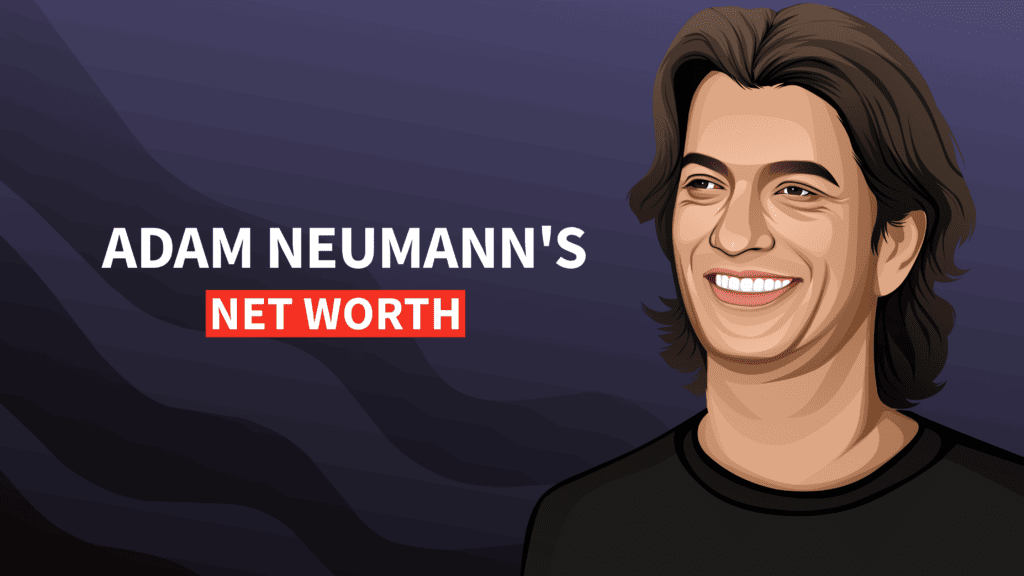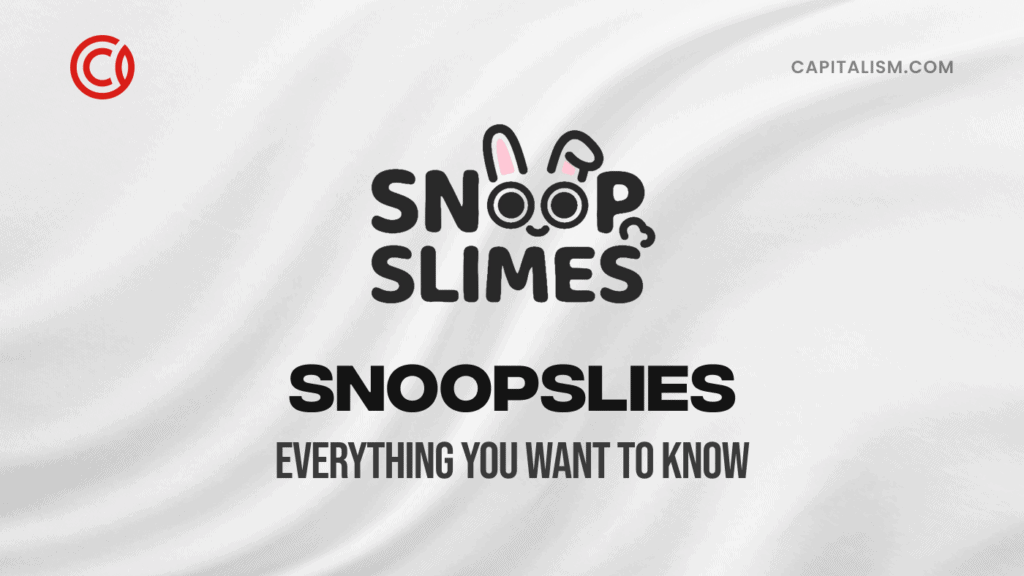Tara Bosch had an unhealthy relationship with candy growing up. She understood the health dangers of too much sugar, but she also had a huge sweet tooth that needed satisfying. When she couldn't find healthier candy alternatives at her store, she decided to make her own and launched SmartSweets.
Bosch started experimenting with sugar-free gummy bears in her kitchen. Fast forward just a few years later, and her experiments grew into a candy empire that brings in millions of dollars a year. Keep reading to learn how SmartSweets is helping everyone satisfy their sweet tooths, minus the sugar and guilt.
SmartSweets Highlights
- SmartSweets is a candy company that offers a growing line of low-sugar candy products. The brand is available in the United States and Canada, lining the shelves of major retailers, including Whole Foods, Target, and Krogers.
- SmartSweets launched in 2016 by Vancouver-based Tara Bosch. Bosch was working on her gummy recipe while going to college. She dropped out as she began her junior year to invest all her resources into her candy business.
- The company was originally named Stevi-Smarts. Bosch rebranded to SmartSweets in December 2015.
- Dragon's Den, Canada's version of Shark Tank, featured the candy company in their season 12 premiere episode. Bosch secured a deal for $100,000 for a 5% stake in the company.
- TPG Growth acquired SmartSweets for $360 million in 2020.
The Story: Smart Sweets, Smart Marketing, and More
Bosch and Grandma share a love for candy.
SmartSweets all began with a love for candy, shared by her and her grandmother. Bosch remarked that the clerk at her local 7/11 knew her name because she'd often purchased Starbucks and Skittles. However, excessive sugar negatively impacted both her and her grandmother's health.
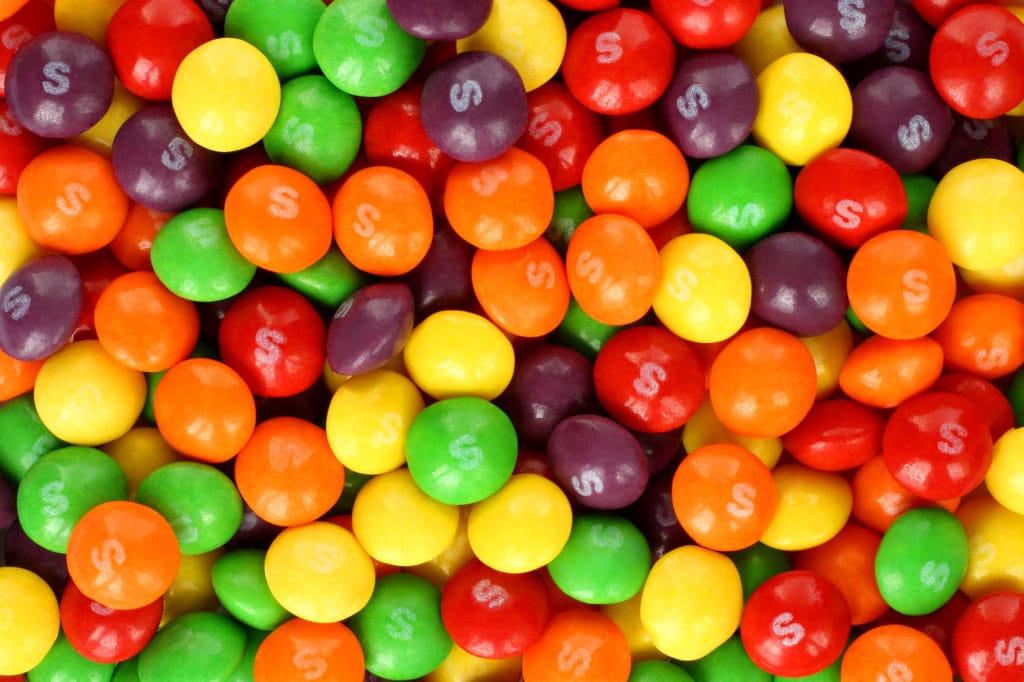
Not wanting to feel this anymore, Bosch sought out low-sugar candy options. After researching the labels, Bosch realized how much sugar is prevalent in our food products. And with many people buying processed goods, dangerously high sugar levels have affected people's health significantly.
When Bosch hit 20, she decided to become more health-conscious. However, knowledge wasn't enough of a solution. Although she understood how sweets were harmful, she couldn't go cold turkey with sugar. Sugar deprivation only led her to crave candy even more.
"It was a perpetual cycle, where I would have candy then feel like crap and then mentally restrict myself from it again," Bosch told CNBC Make It.
When she could not find healthier alternatives to satisfy her sweet tooth, she decided to make her own.
Bosch embarks on a quest to innovate the candy market.
Bosch likely didn't have this grand mission in mind when she first started — she just wanted to eat candy and not feel guilty about it. But it was this simple goal that transformed her idea into a multi-million dollar enterprise. But before we see SmartSweets raking revenue, we see Bosch experimenting in her kitchen.
Bosch knew nothing about cooking. But she knew how to Google. During her college summer break, Bosch researched gummy recipes and healthy ingredients. Some days, she'd spend 16 hours just doing research, she told CNBC's Make It.
"I was looking at food journals on finding alternative bulking agents that could replace things like corn syrup and what ingredients were being used in existing products in the world that could provide the feel and deliciousness of sugar without using actual sugar," she said.

Bosch combined various ingredients, attempting to make gummy bears. (Bosch chose gummy bears because she could only find gummy bear molds on Amazon). After 200 rounds of trial error, Bosch finally had gummy bears that were tasty and had a good mouth-feel. Minus the excessive sugar, of course.
College wasn't doing it for her.
Finally satisfied with a prototype, she sent samples to family and friends. She also had peers at her startup incubator give them a taste. After receiving positive feedback, Bosch realized that this business was her calling. And it would require her full efforts.
Bosch was about to start her junior year of college. However, in August 2016, she decided to drop out. She explained that she didn't have any passion when sitting in her college classes. But working on her candy idea lit her soul on fire.
Although Bosch didn't have any formal business experience, she decided that entrepreneurship was the path forward. It was time to go all-in with her gummy recipe.
With only $15,000 in startup capital, her mentors at her startup incubator and Hootsuite helped her find the right manufacturers.
The candy company lands its first retailer.
The first retailer to stock SmartSweets was Choices Market. Bosch admits that it was sheer persistence that helped her land the deal. She cold emailed and called so many times that the manager relented and arranged a meeting with her. Although wracked with nervousness, Bosch convinced the store of her product's value. Choices Market stocked her "fruity gummy bears" and sold them at CA $3.29 a bag.
Do dragons eat candy?
In 2017, Bosch and SmartSweets appeared on the season 12 premiere of Dragon's Den. Dragon's Den is the "Shark Tank" of Canada. Bosch went into the pitch, asking for $100,000 for 10% of SmartSweets. It turns out that Bosch's product was popular among all the dragons. Bosch accepted the offer from Jim Treliving. It was for $100,000 for just 5% — a far better deal than what she initially aimed for!

Jasmin Ganie-Hobbs, BDC Major Accounts Manager, commended Bosch for her entrepreneurial spirit. Despite her young age and lack of managerial experience, Bosch persevered. She praised Bosch for her strong pitch and having the skills for marketing her physical product.
"I would encourage other budding entrepreneurs to take note from Tara," Ganie-Hobbs said. "Knowing the financial metrics of your company is just as important as having strong product and market knowledge."
The candy company expands its empire.
SmartSweets' appearance on Dragon's Den gave the sweets company the exposure it needed. After the episode aired, it attracted the eye of Whole Foods in the United States. After striking a deal, SmartSweets expanded into the U.S. in March 2018. It stocked 450 Whole Foods locations in the U.S. and Canada combined. By the end of that year, SmartSweets brought in $11.69 million in revenue. Bosch also projected nearly $40 million in sales for 2019.
TPG Growth acquires the candy company.
SmartSweets generated $100 million in sales in 2020, and TPG Growth took notice. That year, Forbes reported that TPG Growth acquired SmartSweets for $360 million — just four years after the company started. TPG Growth is a middle market and growth equity platform with $13.2 billion of assets under management.
Bosch still remains with the company and has maintained her seat on the board. Her role now focuses on strategy and innovation. Her CEO responsibilities transferred to Douglas MacFarlane, the former CEO of Ontario-based Voortman Bakery.
Where is this fruity gummy bears company today?
SmartSweets has expanded far beyond Bosch's kitchen experimentations. SmartSweets is now available in over 3,000 locations across the U.S. and Canada. People can satisfy their sweet tooths by purchasing a pack at Whole Foods, Target, Bed Bath & Beyond, Kroger, and more.

SmartSweets product line has expanded to accommodate nearly any craving. Products include Red Twists, Sourmelon Bites, Peach Rings, and more. In 2020, SmartSweets also launched their first plant-based chewing candy, Smart Chews. These treats feature Allulose, a low-calorie sugar alternative.
What Entrepreneurs Can Learn from SmartSweets
Building a multi-million dollar candy empire in just four years at such a young age is impressive. Here are a few lessons that fellow entrepreneurs can glean from Bosch's journey.
Capitalize on your unique value proposition.
SmartSweets is clear about the pain point they solve. People want to indulge in something sweet without experiencing guilt or shame and risking their health. Research shows that high-sugar diets can lead to obesity and tooth decay. SmartSweets positions itself as a tasty candy brand while minimizing sugar and additives.
"We trust it's possible to live in a world where candy doesn't always equal sugar, and where words like guilt, permission, and indulgence no longer carry weight," the SmartSweets website stated. "We believe we can enjoy candy just as we enjoy life - to the fullest."
SmartSweets uses hard numbers to showcase its value. This data is also useful for distinguishing SmartSweets from its competitors.
- SmartSweets represent sales as the grams of free sugars consumers have kicked from their diet. In 2016, it was 1,172,657 grams. In 2020, that jumped to 1,415,701,821 grams.
- Smartsweets have 72% to 92% less sugar than traditional candy.
- 75% of packaged foods contain added sugar.
- Average adults consume triple the daily sugar intake recommended by the American Heart Association.
- Americans spend an average of $1 trillion annually to combat the health consequences of sugar.
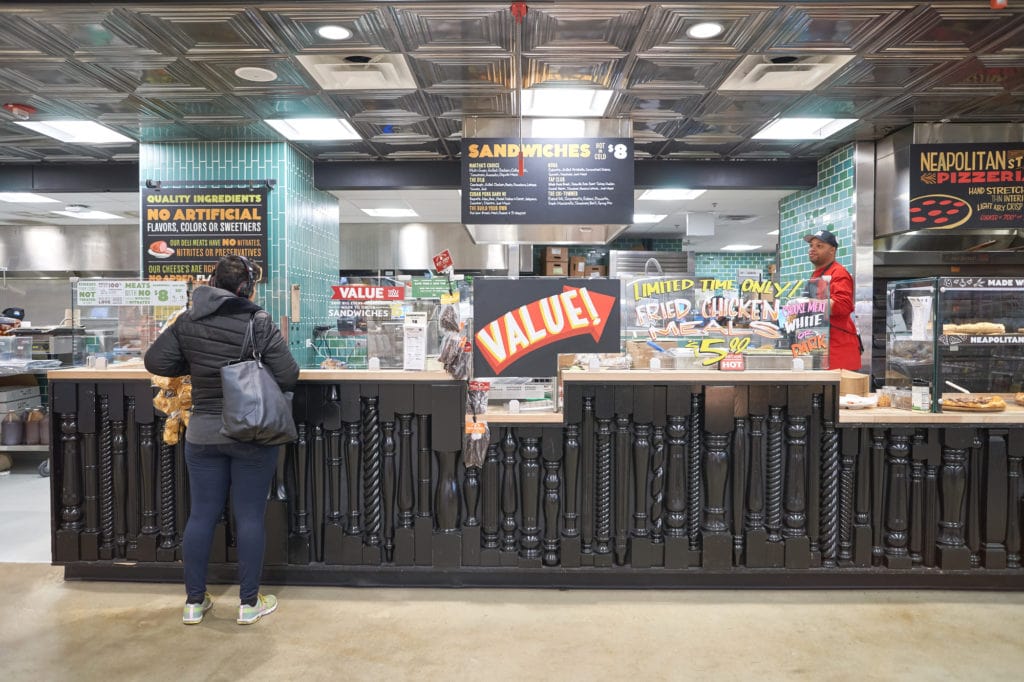
When consumers research SmartSweets, they see the costs of eating high-sugar candy. At the same time, they understand that SmartSweets is a candy brand that aligns with health-conscious trends.
Branding visuals matter.
On the SmartSweets website, they post "Rebel against the rules." SmartSweets describes itself as breaking current candy trends while also setting new standards. SmartSweets is a healthier candy alternative that allows consumers to indulge their sweet tooth. The candy features natural ingredients and higher fiber.
This rebellious leaning shows up in the brand's vibrant colors and bold fonts. Instead of going for a soft palette, SmartSweets branding plays with punchy, fun colors. Each candy serving pack is neon purple or yellow. With a brand that targets women primarily, the website has splashes of bright pink and vibrant turquoise, popular colors among women, according to VMG Studios.
But it wasn't always this way. SmartSweets' earlier packaging had a family-friendly, almost generic look. The branding has since evolved with edgier visuals. Now, SmartSweets jump out on the screen and shelves.
Offer subscription-based orders.
Through the SmartSweets website, consumers can build their own box of sweets and get it shipped to their door monthly. This allows SmartSweets to sell in stores while also selling online.
This subscription-based concept is not new, and we see more ecommerce companies adopt this trend. Examples include Ipsy with makeup products, HelloFresh with preplanned meals, Chewy's with pet supplies.
Highlight your personal values.
As contemporary policies shift toward representation and inclusion, many companies are following suit. Female empowerment has become an element of SmartSweets' branding, both online and offline. In her interviews, Bosch often talks about how her relationship with her grandma inspired SmartSweets. She is also dedicated to female representation on the back-end.

"SmartSweets is passionate about taking sugar out of the candy industry, but they're also passionate about celebrating and supporting women," Bosch told SnackMagic. "The company is owned and operated by mostly women with 60% of the board being female and a whopping 83% of the staff also being women."
Grow your team.
When asked what her best strength was, Bosch said she doesn't have much ego in the things she does. She's familiar with what she brings to the table. At the same time, she recognizes when she lacks the skills or knowledge in a specific area.
"I'm the first to say 'I don't know that. What are your thoughts?' or if I don't know something, then to ask someone who does. I'm okay with being the stupidest person in the room proudly," Bosch told YELL Canada.
Although SmartSweets started as a one-woman enterprise, Bosch was not going solo. During the early stages, she relied on her mentors and peers for guidance. She has steadily hired employees to help SmartSweets scale successfully.
SmartSweets has onboarded some impressive key leaders to grow SmartSweets further. This included Cindy Bokitch, a former Starbucks and Lululemon executive. Michael Parisi, a former marketing executive at BarkThins and PopChips, also joined. They serve as SmartSweet's chief operating officer and senior vice president of sales and marketing for the company, respectively.
SmartSweets FAQs
How much is SmartSweets worth?
TPG Capital reportedly acquired SmartSweets for $360 million, according to Forbes.
Are Smart Sweets actually healthy?
SmartSweets candy products carry 79% to 92% less sugar than traditional candy, according to their website. The recipes are free from artificial sweeteners, added sugars, and sugar alcohols. SmartSweets products are also high in plant-based fibers.
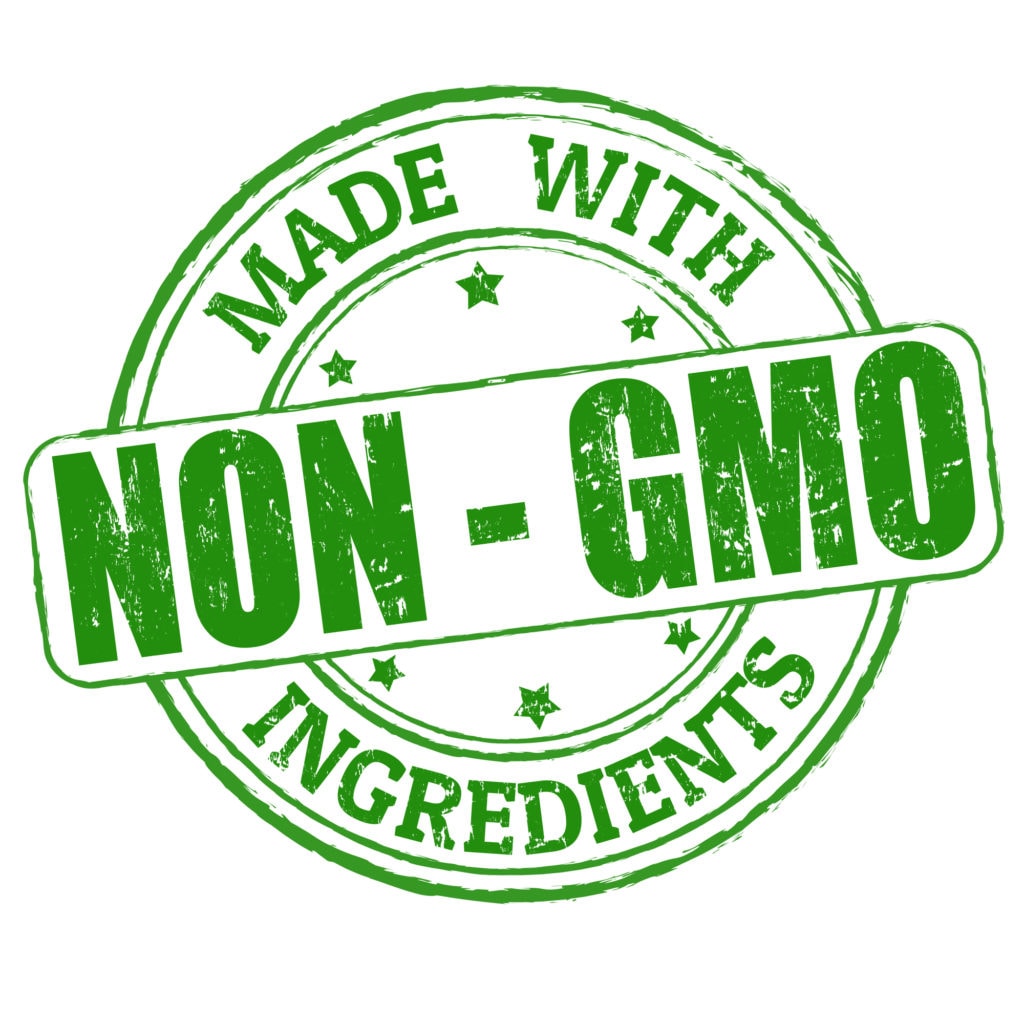
The health benefits of the candy itself are debatable. However, SmartSweets may offer a healthier alternative to other popular candy brands.
What ingredients are in SmartSweets? Is
The ingredients and amounts can vary from each SmartSweets product. Their website does list ingredient trends that seem to apply throughout their candy line, including:
- Fruit and vegetable juices, such as pumpkin and carrot, to give their candies their vibrant colors
- Plant-based fibers and plant-based sweeteners to sweeten their candies without sugar alcohols
- Non-GMO ingredients
- Free from gluten, dairy, tree nuts, and peanut ingredients
Is SmartSweets Keto-friendly?
No, according to Perfect Keto. They reported that one bag of SmartSweets was enough to leave ketosis. If you're seeking a keto-friendly sweet treat, then SmartSweets may not be the ideal option.
However, SmartSweets has been modifying its recipe, and it is leaning more keto-friendly. So far, they are working to reduce net carbs as low as possible and continuing to avoid sugar and sugar alcohols. In upcoming years, SmartSweets may offer a keto-friendly option.

Is SmartSweets candy vegan?
However, you will want to avoid the Fruity Gummy Bears, Sour Gummy Bears, and Gummy Worms, which contain gelatin.
The Bottom Line
Bosch didn't have an upbringing that nurtured her entrepreneurial spirit. She didn't have any managerial experience to help her run her company. However, these didn't stop Bosch from bringing her idea to fruition.
What she did have was time and passion. Bosch sometimes worked 16-hour days helping her candy startup achieve liftoff. With all the research, experimenting, and grit she put into her business, it paid off. Now, SmartSweets is generating millions in annual revenue while helping people consume less sugar.
The thing is, no longer do you have to carry the whole weight of a startup on your own shoulders. Following the Owner's Model, building a million-dollar business you can one day sell for tens of millions is more doable than ever.
Where doing it alone is possible, it's incredibly exhausting. You have to learn and master all the strategies, tactics, tools, and tasks along the way.
But in the Owner's Model, which we teach inside the Capitalism Incubator, you'll learn how to find a great business idea and how to cast a vision you can share with investors and influencers. By building a bigger pie (plenty of equity to share), you can rely on the expertise of others to give your business every advantage, right from the start. After all, it's better to own some of a business that grows huge than all of one that never grows at all.
Not only will you learn this new way of entrepreneurship, but you'll also find connections to investors and audience leaders. When you build with a team of people who throws their full support behind you, that's the way to create a business that changes your life forever.
You can learn more about the Capitalism Incubator and submit your application right here.



